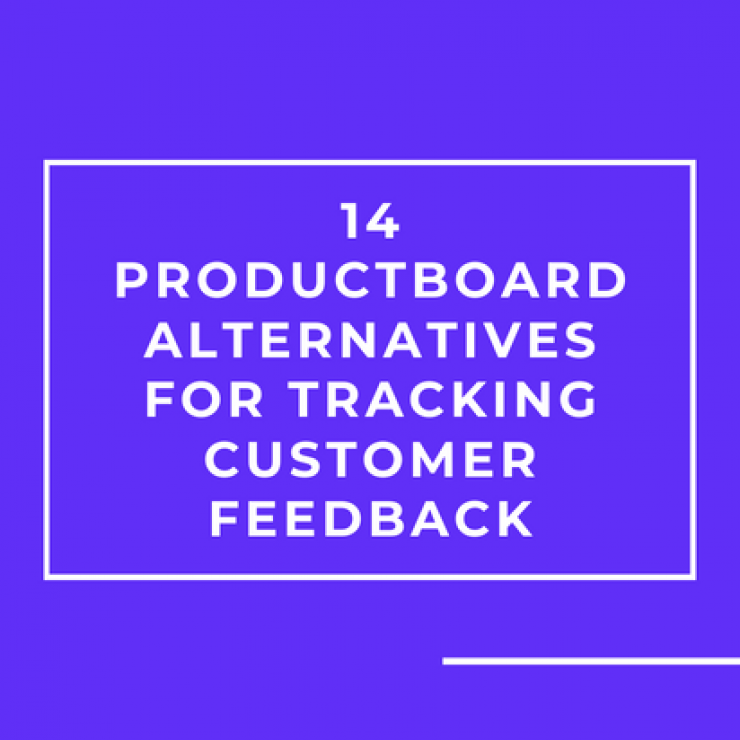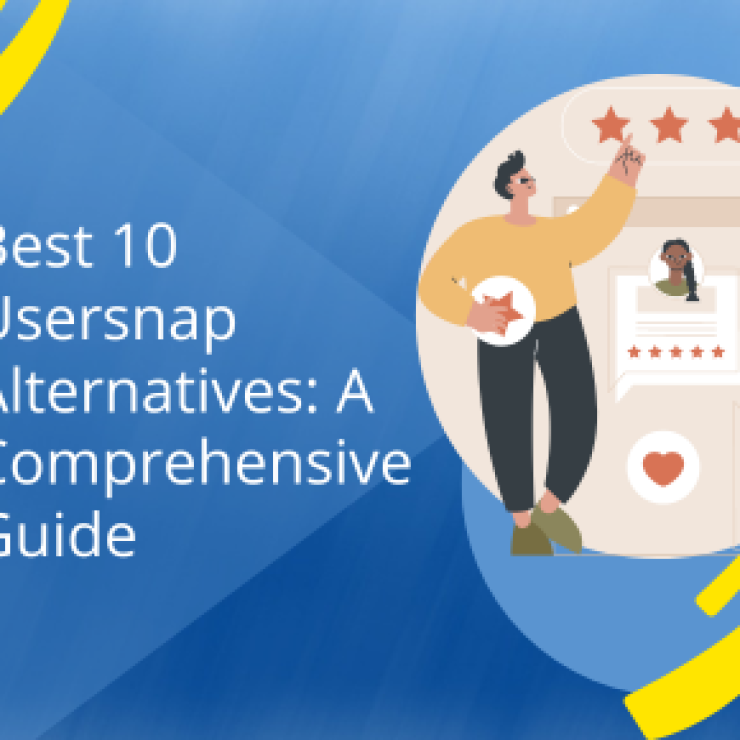Whether you’re a startup looking to launch a new product or an established company planning to introduce a new feature, customer feedback is crucial. Platforms like Frill have become popular in collecting and managing this feedback.
However, different businesses have different needs, and Frill may not always be the best fit. In this blog, we’ll explore 13 top Frill alternatives to consider in 2023.
Top 13 Frill Alternatives
Sure, let’s delve deeper into each tool, including their pros and cons.
1. SAASFE
SAASFE shines with its robust features, including multi-channel feedback collection, automated feedback analysis, and third-party application integration. This comprehensive solution allows businesses to gather diverse and extensive customer feedback.

Pros: Wide-ranging features, seamless navigation, and excellent customization capabilities.
Cons: Can be overwhelming for users seeking simplicity in feedback management.
2. UserVoice
UserVoice offers a unique combination of crowdsourcing and feedback analysis. Its CRM integration, data-driven decision-making capabilities, and instant answers for customer queries set it apart. UserVoice serves as a comprehensive solution for businesses seeking advanced feedback analysis tools.

Pros: Incorporates crowdsourcing, offers comprehensive analysis tools, and provides excellent CRM integration.
Cons: May not be the best fit for businesses seeking basic, straightforward feedback collection tools.
3. Hellonext
Hellonext focuses on streamlining feedback management. Its platform offers feature voting, public roadmaps, and an intuitive feedback portal that enhances customer engagement and transparency, making it a reliable choice for businesses.

Pros: Promotes transparency and engagement, provides an intuitive interface, and facilitates streamlined feedback management.
Cons: Could improve on its integration capabilities with other platforms.
4. Aha!
Aha! is an all-in-one product roadmap software with extensive ideation, strategy formulation, and roadmapping tools. Its seamless integration with popular platforms ensures smooth operations, aligning product development with strategic goals.

Pros: Comprehensive tools for strategy formulation and product development, excellent integration capabilities.
Cons: Requires a learning curve to fully utilize its extensive features.
5. Canny
Canny provides a straightforward platform for managing customer feedback. Its unique features like feedback boards and vote tracking simplify the process of prioritizing product updates based on customer preferences.

Pros: Simple and user-friendly, provides clear visual aids for feedback management.
Cons: May lack advanced customization options sought by some businesses.
6. Prodpad
Prodpad is the another frill alternative, that brings together customer feedback and product management in a comprehensive suite of tools. Its platform facilitates idea consolidation, product strategy definition, and roadmap development, striking a balance between functionality and collaboration.

Pros: Feature-rich, facilitates collaboration, and provides robust product management tools.
Cons: Could be overwhelming for beginners due to its extensive features.
7. UseResponse
UseResponse offers a comprehensive solution for customer support, including omnichannel support and an AI-powered self-service portal. Its diverse features ensure efficient customer support and feedback management.

Pros: Comprehensive customer support features, includes AI-powered suggestions.
Cons: The design may feel outdated compared to more modern platforms.
8. Nolt
Nolt, frill alternative allows businesses to create a community around their products, fostering customer engagement. Its platform lets users capture, prioritize, and act on customer suggestions, providing a strong platform for community-driven feedback.

Pros: Encourages community-driven feedback, allows customer engagement.
Cons: May lack advanced data analysis tools.
9. Productboard
Productboard stands out with its ability to consolidate user insights, prioritize features, and share product roadmaps. Its diverse integration capabilities and user research repository make it a flexible solution for businesses.
Pros: Provides a user research repository, offers diverse integration capabilities.
Cons: Its pricing can be a barrier for small businesses.
10. UserReport
UserReport offers a unique combination of feedback and online surveys. Its survey builder and feedback forum ensure a targeted, structured collection of user feedback, making it a good choice for businesses looking for comprehensive survey features.

Pros: Provides a survey builder, offers structured feedback collection.
Cons: Lacks advanced analysis features.
11. Fider
Fider is a cost-effective, open-source platform that allows businesses to understand and cater to customer needs. Its basic features are designed for sharing and voting on ideas, providing a budget-friendly option for startups and small businesses.

Pros: Cost-effective, straightforward for sharing and voting on ideas.
Cons: Lacks comprehensive features offered by more advanced platforms.
12. Doorbell.io
Doorbell.io integrates with websites, applications, or even emails to collect feedback. Its platform allows team collaboration on resolving user issues, making it a great option for customer-centric businesses.

Pros: Easy integration with multiple platforms, promotes team collaboration.
Cons: Could use more advanced features for feedback analysis.
13. GetSatisfaction
GetSatisfaction provides a robust community platform for businesses to connect with customers. It allows customer engagement, idea sharing, problem resolution, and praise, all in one platform, making it an excellent choice for customer relationship building.
Pros: Fosters strong customer relationships, facilitates engagement, and problem resolution.
Cons: May not offer advanced analytical tools for feedback management.




